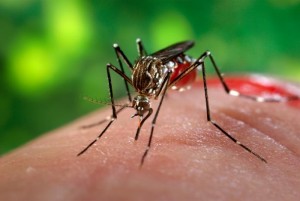NewsDesk @bactiman63
In a follow-up report on autochthonous dengue fever transmission in the state of Florida, the Florida Department of Health in Miami-Dade County (DOH-Miami-Dade) confirmed a second locally transmitted dengue case in a county resident.

This is the second case reported in the state in 2022. Miami-Dade County remains under a mosquito-borne illness advisory.
Concerning travel associated dengue transmission in Florida, health officials report seventy-three cases with onset in 2022 have been reported in individuals with travel history to a dengue endemic area in the two weeks prior to onset. Counties reporting cases were: Brevard, Broward (3), Duval (3), Hillsborough (6), Hendry, Lee (4), Manatee, Miami-Dade (44), Orange (2), Palm Beach (3), Pinellas, Polk, Sarasota, St. Johns, and St. Lucie. Four cases were reported in non-Florida residents.
Of the 73 cases, 56 (77%) of the travel associated cases were from travel from Cuba.
Subscribe to Outbreak News TV on YouTube
Dengue is a virus spread through mosquito bites by Aedes mosquitoes which also spread the chikungunya and Zika virus. Most people infected with dengue have mild or no symptoms. Those that do develop symptoms typically recover after about one week.
The common symptoms of dengue are fever and one or more of the following symptoms: headache; eye pain (typically behind the eyes); muscle, joint, or bone pain; rash; nausea and vomiting; or unusual bleeding (nose or gum bleed, small red spots under the skin, or unusual bruising). Severe dengue can occur resulting in shock, internal bleeding, and death.
- Laos dengue tally continues rise, More than 2,000 cases reported in past week
- Bolivia reports 1st Rubella case since 2006
- Brazil: Teen who contracted rabies in the Federal District dies
- Uruguay reports first imported case of monkeypox in Montevideo
- Spain reports 2nd monkeypox death, Patients hospitalized with meningoencephalitis
- Brazil chikungunya case count tops 186K year to date
- Mozambique: 3 additional wild polio cases reported


2 thoughts on “2nd dengue local transmission reported in Miami-Dade County, Florida”